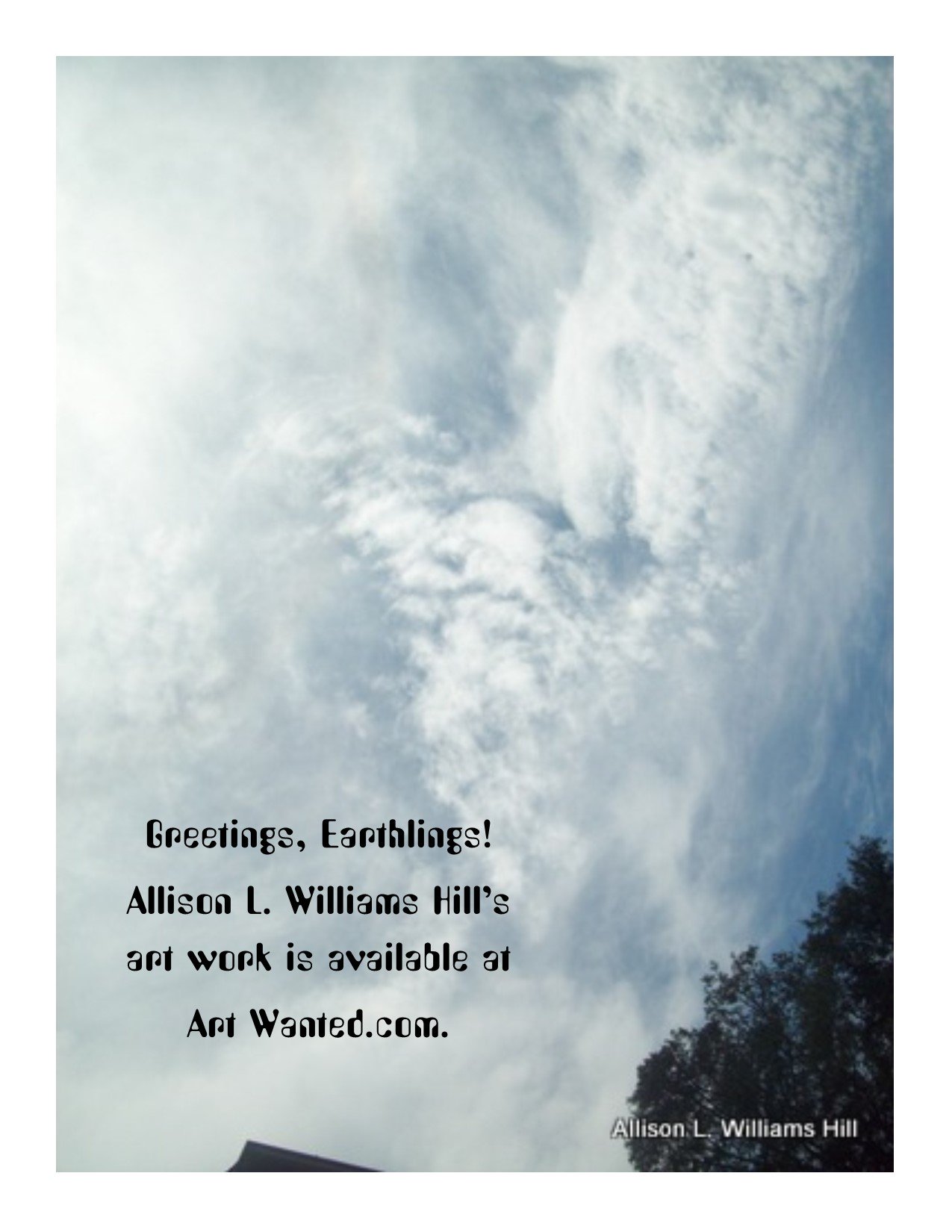Plants
Domestic Animals from Chapter XXIII: By Our Relation To Lower Kingdoms from The Hidden Side of Things by C.W. Leadbeater
Part II
Another direction in which we may exercise a good deal of influence if we will,
is upon the plants in our gardens. Plants, like animals, are quick to respond
to wise and loving care, and are distinctly affected not only by what we do for
them physically, but also by our feelings towards them. Anyone who possesses
astral sight will be aware that flowers delight in and respond to a feeling of
admiration. The feelings of the vegetable differ rather in degree than in kind
from those of the animal or of the human being, and they bear somewhat the same
relation to those of the animal as do those of the animal to those of the human being.
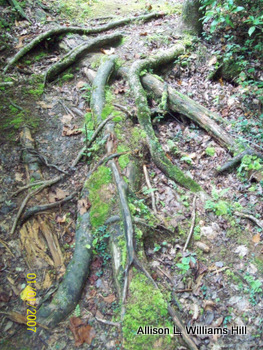
Roots by Allison L. Williams Hill
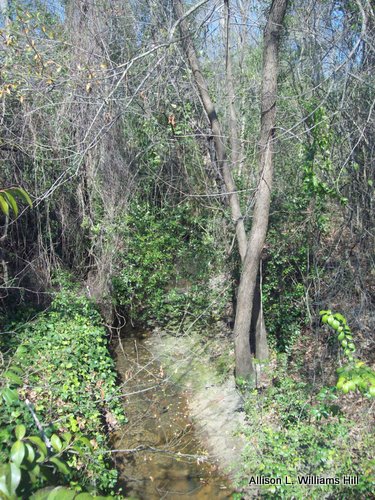
Tranquility by Allison L. Williams Hill
If we descend to the vegetable kingdom we find that the vegetable has scarcely any power of expression; but we shall be making a grave mistake if we therefore assume that there are no feelings to express. Emotion in the vegetable kingdom is again far less complex even than that of the animal, and it is altogether vaguer-- a sort of blind instinctual feeling. The chief physical manifestation of it is the well-known fact that some people are always fortunate with plants, while others are always unfortunate, even when the physical measures adopted are precisely the same. This difference exists everywhere, but in India it has been specially noted, and certain people are described as having the lucky hand, and it is recognised that almost anything which those people plant will grow; even under quite unfavourable conditions, and that anything which they cultivate is sure to turn out well. When this influence is universal over the vegetable kingdom it is not a question of individual liking, but of certain characteristics in the person, and certain qualities in his astral and etheric vehicles which prove generally attractive, just as there are some people with whom all dogs will at once make friends, and others who without effort can manage the most recalcitrant horses.

Number One by Allison L. Williams Hill
But plants are also capable of individual attachment, and when they get to know people well, they are pleased to see (or rather to feel) them near. A person who pours upon his flowers a stream of admiration and affection evokes in them a feeling of pleasure-- first of a general pleasure in receiving admiration, which might be thought of as a sort of germ of pride, and then, secondly, a feeling of pleasure at the presence of the person who admires, which in the same way is the germ of love and gratitude. Plants are also capable of anger and dislike, though outwardly they have hardly any means of showing them.
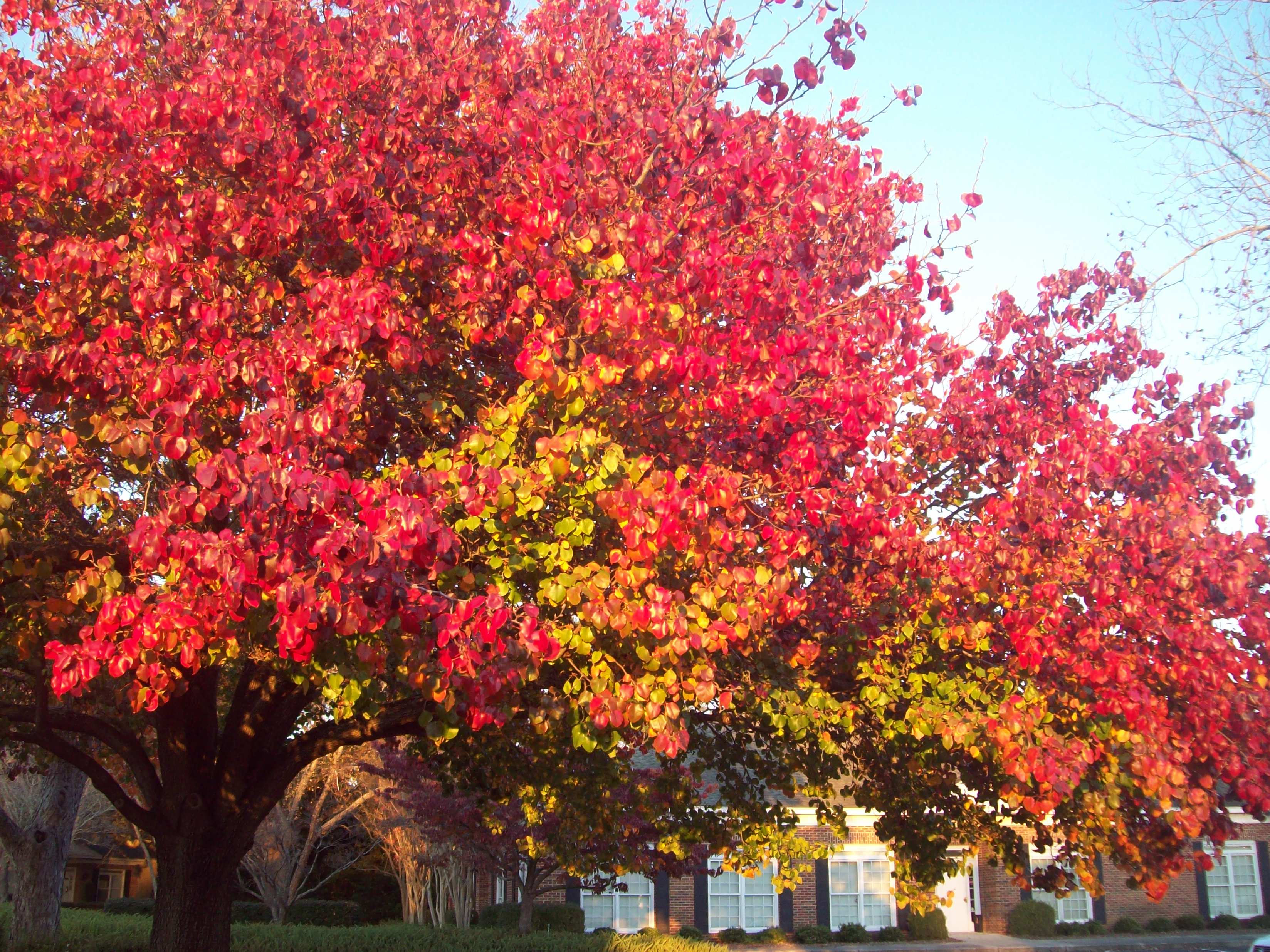
An occultist who has a garden will make a point of seeing that it is in every way perfectly and carefully looked after, and more than this, he will himself make friends with the flowers and trees and shrubs, and will go sometimes to visit them and give each its due meed of admiration, and so in giving pleasure to these lowly organisms he will himself be surrounded by a vague feeling of affection.
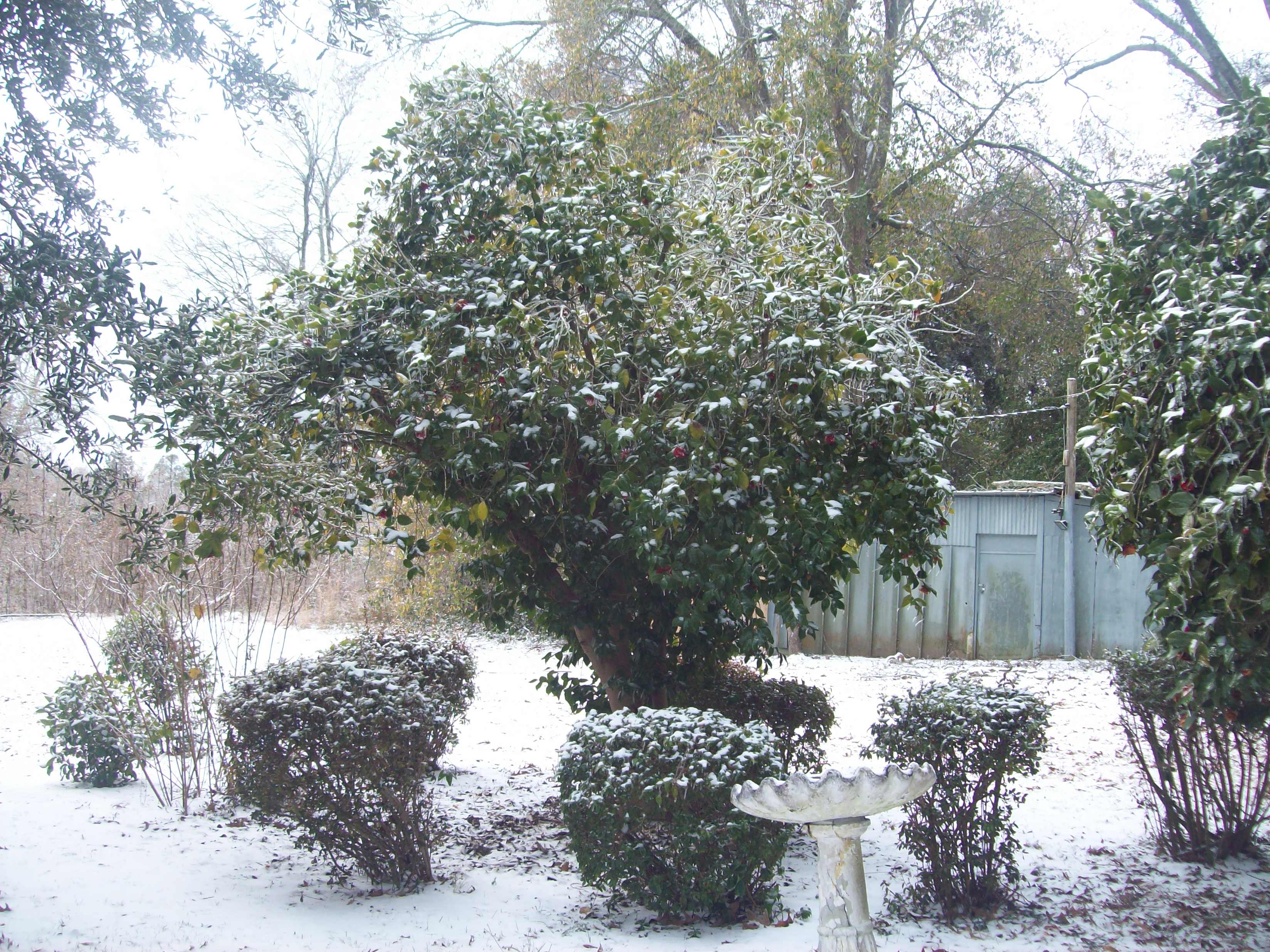
Winter in Orangeburg by Allison L. Williams Hill
It may be said that the feeling of a vegetable can hardly be strong enough to be worth taking into account. It is true that the influence exerted by it upon a human being is less than would be produced by the feeling of an animal; but these influences do exist, and though the feeling of one plant may not seem important, the feeling of hundreds begins to be a recognisable factor, and if we wish to make the best possible conditions, we must not ignore our less developed brethren of the lower kingdoms. That much even from the purely selfish point of view; but the occultist naturally thinks first of the effect upon the plant.
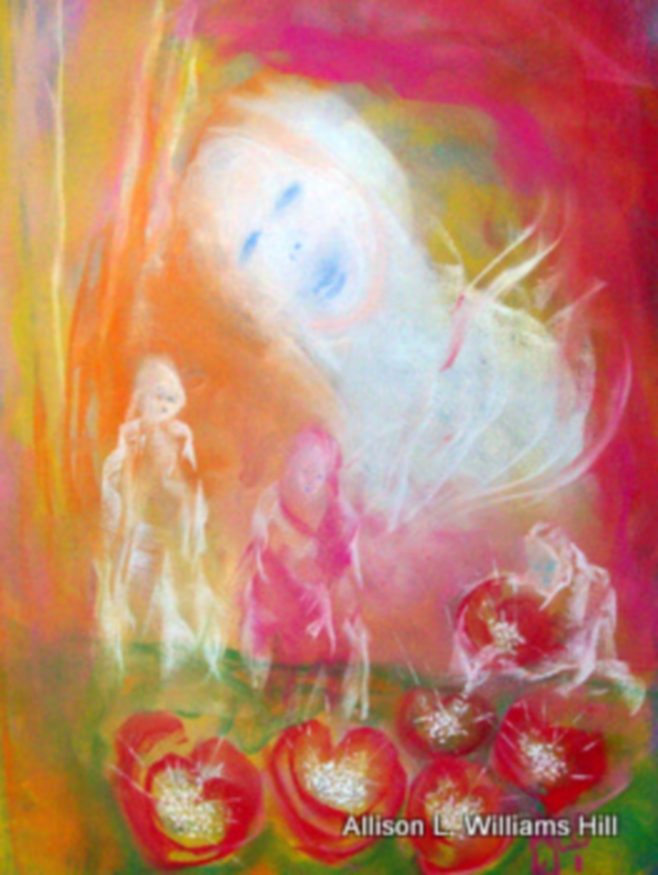
"...and the hearts became roses with diamond seeds."
by Allison L. Williams Hill
When we form a garden we are drawing round us a number of members of the vegetable kingdom
for our own pleasure; but at the same time this affords us an opportunity of helping them
in their evolution, an opportunity which should not be neglected. Plants differ much in their
power to receive and respond to human influences. A large tree, for example, with its slow
growth and its long life, is capable of forming a far stronger a attachment than anything
which is merely annual. Such a tree comes to have a decided personality of its own, and is
even sometimes able temporarily to externalise that personality, so that it can be seen by
the clairvoyant. In such a case it usually takes upon itself human form for the time, as I
have mentioned in The Inner Life, Vol. ii. Those who wish to understand how much more intelligence
there is in the vegetable kingdom than we usually think, should read a delightful book called The
Sagacity and Morality of Plants by J.E. Taylor.
Nature-Spirits
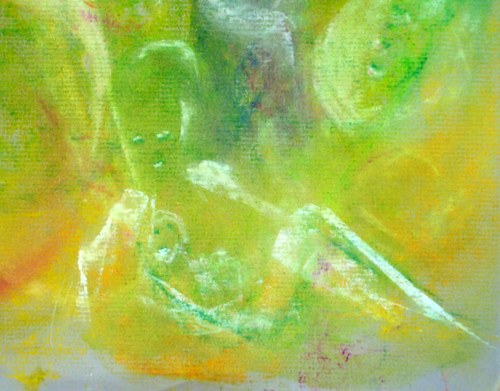
Nature II Mother Nature detail by Allison L. Williams Hill
This wonderful evolution has been described in an earlier chapter, but from the point of view of its effect upon us, rather than of ours upon it. Here we must consider the outer side of that relation-- the influence which we may exercise upon the nature-spirits of our neighbourhood, and the friendship which we may make with them. Many of their tribes are so beautiful and so interesting that their acquaintance would repay cultivation, and we may help to develop their intellect and affection, and so do them much good. Those of them who possess etheric bodies have the power to make themselves physically visible if they choose, so men who are happy enough to gain their friendship may occasionally be rewarded by a view of them even with ordinary sight. There is also a probability that such friends may be helped by these elves to attain flashes of temporary clairvoyance, in order that in that way they may see them.
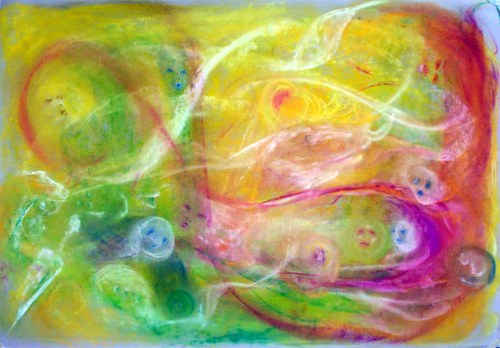
A fairy has many points of resemblance to a wild animal, and the method of making friends with him is much what we should have to adopt if we were trying to tame birds or deer. He is shy and distrustful towards man; how is this distrust to be overcome? One who wishes to study at first-hand the habits of a bird usually goes to the haunt of the creature, conceals himself, and remains perfectly quiet, in the hope that the bird will not see him, or if it does, will be reassured by his absolute stillness. The etheric sight of a nature-spirit pierces through walls or bushes, so it is hopeless to attempt to evade his observation; and for him the stillness which is important is not that of the physical body, but of the astral. He objects to the filthy physical emanations of the average man-- of meat, of tobacco, of alcohol, and of general uncleanliness; obviously one who wishes to make friends with him must be free from all these. He objects, too, to storms of passion and impurity; so the man who seeks him must also be free from all low and selfish feelings, such as lust, anger, envy, jealousy, avarice or depression.

These negative qualifications being in order, can anything positive be done to
invite the approach of so coy a visitor? Animals can often be attracted by the offer
of food, but as a fairy does not eat, that particular allurement is not available in his case.
The student can provide for him conditions which he is known to enjoy. Strong unselfish affection
or devotion, or indeed any high feeling which burns steadily and without wild surgings, creates
an atmosphere in which the nature-spirit delights to bathe.

The man-- the right sort of man-- who rests for a while in some lovely, lonely spot-- in a wood perhaps, or by a stream or a waterfall-- and revels in such thoughts as have been suggested, is quite likely to become aware of an unfamiliar presence, of something fascinating, yet strange and non-human; and perchance, if fortune greatly favours him, he may even see as well as feel, when the shy, wild creature becomes a little more accustomed to him, and gradually learns to trust and like him. But if the student remembers that to the nature-spirit this is an adventure such as it would be for a mouse to make friends with a cat, or for a man to endeavour to establish fraternal relations with a tiger in the jungle, he will learn to exercise unlimited patience, and not to expect immediate results.
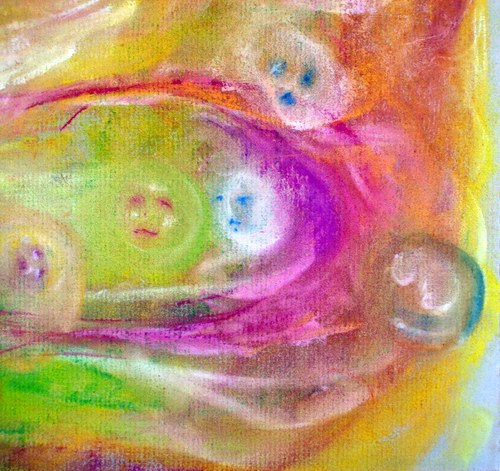
Almost all nature-spirits delight in music, and some are specially attracted by certain melodies; so if the experimenter happens to be a performer upon some portable instrument, such as the flute, it may increase his chances of success if he plays upon it. I knew an elf in Italy who was so fascinated by a particular piece of music that when it was played on the piano, he would actually leave the wood in which he dwelt and come into the drawing-room to enjoy it and dance to it-- or rather to bathe in its sound-waves, to pulsate and sway in harmony with them. But I never knew him to do this if there were more than two or three people in the room-- and even those must be friends whom he had learned to trust.
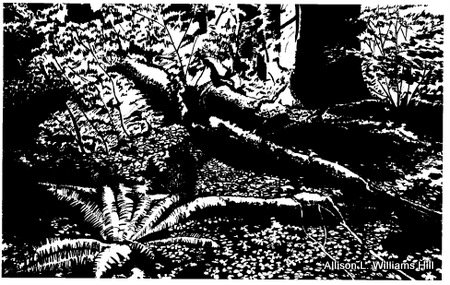
More than once I have seen a shepherd-boy in Sicily, sitting in some lonely spot on the hillside, playing on his home-made double Pan-pipe like an ancient Greek, with an appreciative audience of fairies frisking round him of which he was probably blissfully unconscious, though no doubt their delight reacted upon him and added zest to his playing. Sometimes the peasants do see the nature-spirits, however; plenty of instances may be found in Mr. Wentz' Fairy Faith in Celtic Countries.
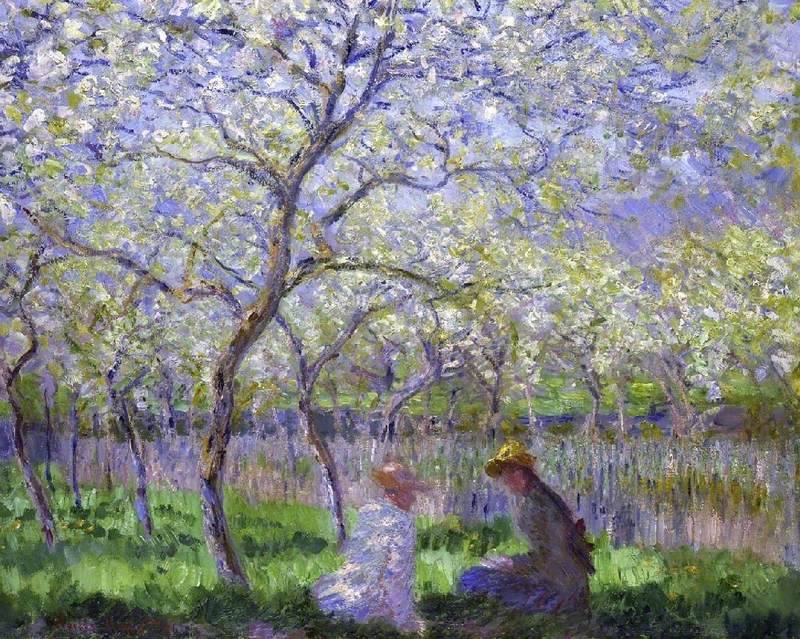
Springtime Le Printemps by Claude Monet
Links
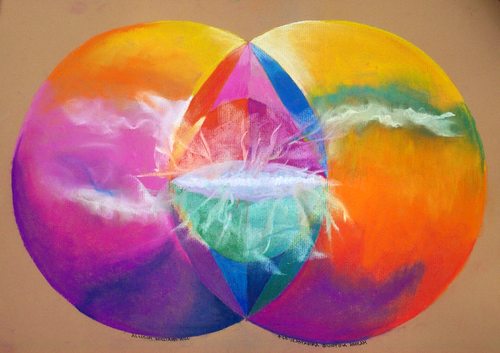
The above meditation mandala will be available soon.
